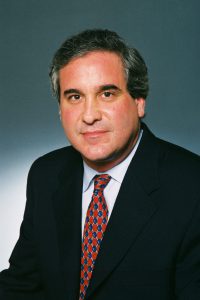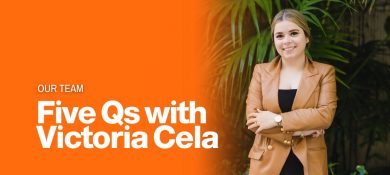More than 85,000 people practice law in the state of Florida, and while all are leaving their mark on the profession – a very few have earned the reputation of being a ‘rainmaker.’ Law360 sat down with two of the region’s top rainmakers –Podhurst Orseck’s Steven Marks and Levine Kellogg Lehman Schneider and Grossman’s Jeffrey Schneider – to learn what it takes to succeed in today’s highly competitive market.
 Rainmaker Q&A: Podhurst Orseck’s Steven Marks
Rainmaker Q&A: Podhurst Orseck’s Steven Marks
Steven C. Marks is a managing partner at Podhurst Orseck PA in Miami. Marks focuses his practice on personal injury and wrongful death litigation, product liability, aviation litigation, commercial litigation, class actions, medical malpractice, premise liability and admiralty.
He has acted as lead counsel, appointed court counsel and/or counsel representing victims in a number of commercial class actions and major airline crashes. He also acts as lead trial counsel for countless victims of general aviation and military accidents, many involving foreign claimants and in addition to his aviation, general personal injury and wrongful death practice, he also counsels foreign governments, including the Russian Federation, the Republic of Venezuela, Ecuador, Belize, Honduras and numerous Brazilian states.
He currently represents families of victims from Malaysia Air flight MH370, victims from the Germanwings crash, as well as victims from the Metrojet bombing on a flight from Egypt to St. Petersburg, Russia.
Marks was recently appointed as a victim’s representative to the legal advisory committee for the International Civil Aeronautical Organization.
Q: What skill was most important for you in becoming a rainmaker?
A: In my practice, I am so often dealing with people from all parts of the globe who are undergoing incredible heartache and pain over the serious injury or death of a loved one. Being successful requires a great deal of empathy, as well as an understanding of their cultural differences. Clients want to feel that you care and that you will fight for them as if the loss they are suffering is your own.
Q: How do you prepare a pitch for a potential new client?
A: For me, it is not as much about the time spent preparing for the meeting or making a “pitch” as it is about the time spent with the prospective client. My meetings are often with a family or groups of families who have lost loved ones in a plane crash or similar tragedy — and they have usually brought me in because they have already researched me.
So while it is important to briefly discuss my professional experiences, it is even more important to show compassion and to listen. At the same time, I try to communicate that while I cannot undo the damage that has been done, I will do everything possible to uncover the truth about why and how their loss occurred, to do what we can to prevent future tragedies and to fight to hold those responsible accountable through the terribly inadequate compensation system. If you can connect with the victims on a personal level, it goes a long way to building trust as a counselor and advocate.
 Rainmaker Q&A: Levine Kellogg’s Jeffrey Schneider
Rainmaker Q&A: Levine Kellogg’s Jeffrey Schneider
Jeffrey C. Schneider is a trial lawyer at Levine Kellogg Lehman Schneider and Grossman LLP in Miami whose practice focuses on complex commercial litigation, receiverships, and international arbitration. He is a founding partner who has been managing partner of the firm since its inception, and is also co-chairman of the firm’s receivership group.
Schneider has been trying complex, high-risk cases in federal and state trial and appellate courts, and in arbitration proceedings, for nearly 25 years. He concentrates his practice on fraud litigation, receivership litigation, professional malpractice defense, title insurance litigation, and international litigation and arbitration.
Known for his creative and passionate approach to litigating complex commercial disputes, Schneider is often called upon to handle serious, high-stakes matters for major companies and organizations. Schneider represents American Express, Fannie Mae and Fidelity National Title Insurance Company, among others. He has also been appointed to serve as a receiver by theU.S. Securities and Exchange Commission, the Federal Trade Commission, the Office of the Attorney General, State of Florida, and the U.S. Commodity Futures Trading Commission.
Schneider is a frequent lecturer in the areas of receivership litigation and international litigation and arbitration.
Q: What skill was most important for you in becoming a rainmaker?
A: There is no easy answer to this question. Entire papers have been written on just this topic. First and foremost, you need to be an exceptional attorney, particularly when it comes to complex commercial work. Clients with seven-figure and eight-figure disputes are probably not going to trust them to a novice. But so much more is necessary. You need to be a good listener to fully appreciate your client’s problems. You need to be a good problem solver, too. Clients are not interested in litigation — they are interested in results. And you need to park your ego at the door, as sometimes good ideas come from the most surprising of places.
The best rainmaker I knew had an uncanny ability to make nervous clients feel comfortable. It’s a remarkable talent that combines brilliance, charisma, humor, practicality and general “coolness” under pressure. These attorneys are able to listen to the problem, size it up quickly, devise a plan immediately, and then execute on it. These attorneys are positive thinkers and natural problem solvers. And when you do that, the client will come back to you — and tell their friends to do the same.
Q: How do you prepare a pitch for a potential new client?
A: Too many attorneys think the proverbial “pitch” is about what the attorney says and the way in which he or she says it. I disagree. I view the pitch as an opportunity to learn about the client and the problem they are having. Preparing for a pitch is not about selling myself as much as it is about getting to know my prospect. A lot of attorneys make the mistake of talking all about themselves and not about the challenges the client faces, which is, at the end of the day, why we are there in the first place.







 See More Blogs
See More Blogs
Comments